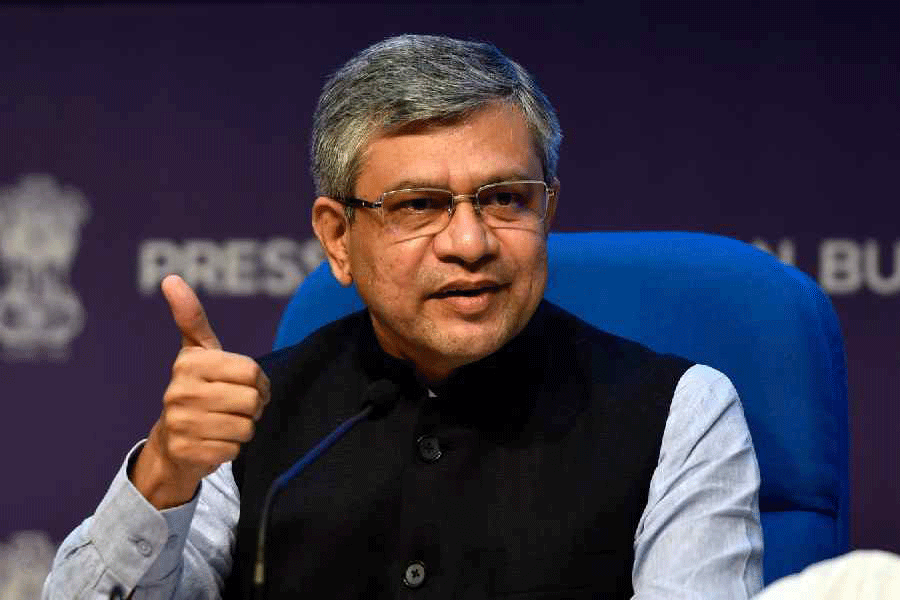The government has approved investments by 27 companies, including Dell, HP and Foxconn, under its $2 billion incentive scheme to manufacture IT hardware domestically.
Information technology minister Ashwini Vaishnaw said the companies are expected to invest Rs 3,000 crore ($360 million) collectively, while creating 50,000 jobs in the sector.
Approvals have also been granted to domestic manufacturers, including Dixon Technologies and VVDN, the minister said.
The production-linked incentive (PLI) scheme for IT hardware covers laptops, tablets, PCs, servers and ultra-small form factor devices.
The approval comes at a time India is wooing IT hardware players with policy sweeteners and incentive schemes, making a determined push to position itself as a global powerhouse for high-tech manufacturing.
“I am happy to announce that 27 companies have been approved for the PLI IT hardware scheme. About 95 per cent of these ... 23 companies are ready to start their manufacturing from day-zero,” Vaishnaw said at a briefing.
Four companies will start their production in the next 90 days.
“These 27 applications will lead to investments of about Rs 3,000 crore...The most important thing is that the value chain is shifting to India,” the minister said.
The approvals will position India as a big force in manufacturing of IT hardware, Vaishnaw said.
Other applicants that have received the green signal include Optiemus, Padget Electronics, SOJO Manufacturing Services, Goodworth, Neolync, Syrma SGS, Mega Networks, Panache Digilife, and ITI Ltd.
With complex work now beginning to happen in India, there is an increasing level of value addition from here, Vaishnaw said.
“As these companies get established and scale up, many of the component sub-assemblies are coming... Beyond that, the base-level components are coming in parallel. It is a natural pull, and an additional point that is working in our favour is that there are very good design capabilities in the country,” he added.
India hopes to play on the strength of its storied talent and skill base, vibrant market, and enabling policies to corner a substantial chunk of new investments flowing into IT, electronics and semiconductor production, and global value chains. The scheme will lead to additional production of Rs 3.5 lakh crore.
Deepfake issue
The government will soon meet social media platforms on the deepfake issue, Vaishnaw said, asserting that the safe harbour immunity clause, which most social media platforms have been enjoying, will not apply if platforms do not take adequate steps to remove deepfakes.
“They are taking steps...but we think that many more steps will have to be taken. And we are very soon going to have a meeting of all the platforms ... Maybe in the next 3-4 days, we’ll call them for brainstorming on that and make sure that platforms make adequate efforts to prevent it (deepfakes) and to clean up their system,” he said.
Recently, several ‘deepfake’ videos targeting leading actors went viral, sparking outrage and raising concerns about the misuse of technology and tools. The government had recently issued a notice to companies on the deepfake issue and the platforms had responded. However, the firms will have to be more aggressive in taking action on such content, the notice said.










